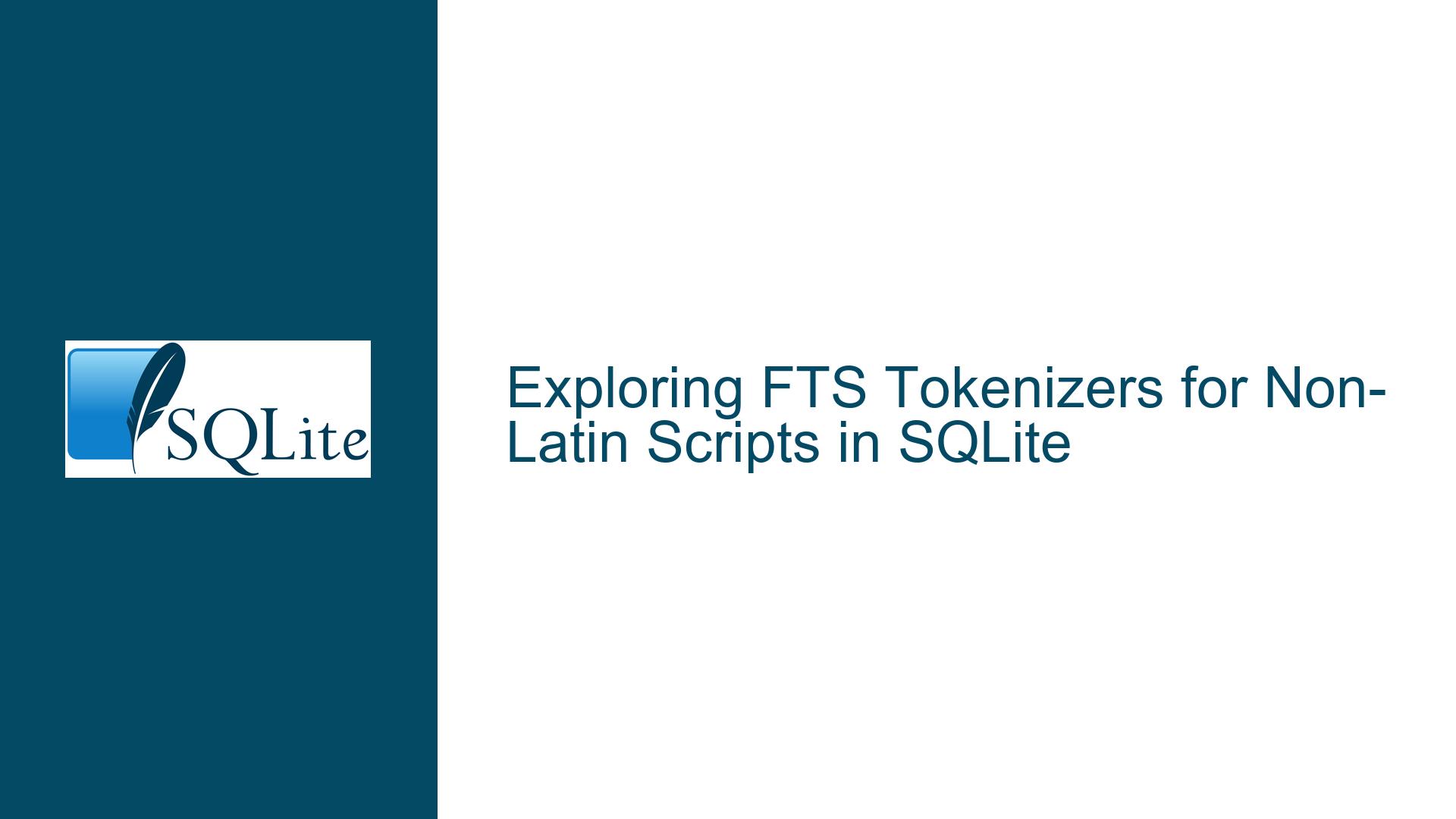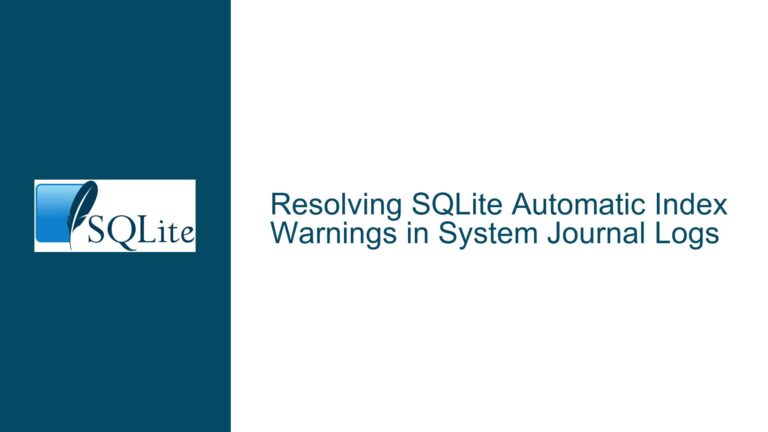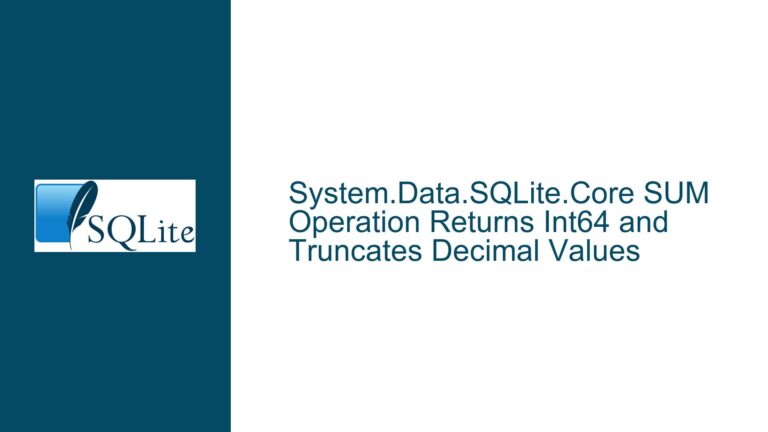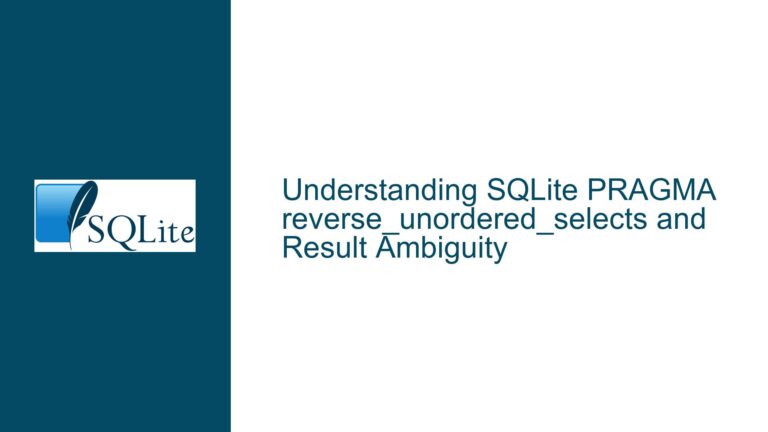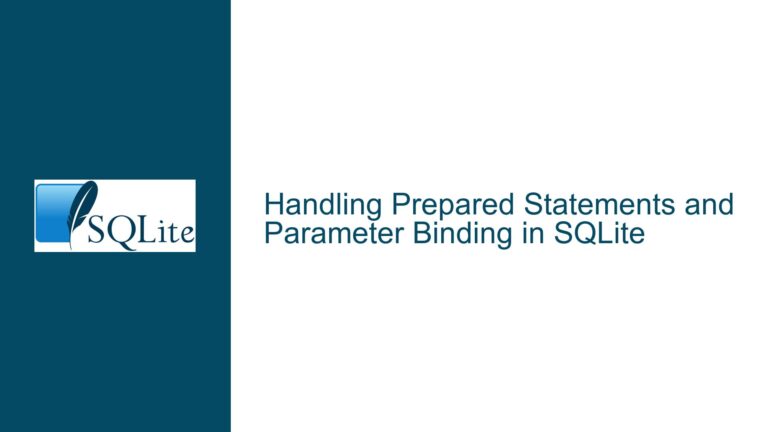Exploring FTS Tokenizers for Non-Latin Scripts in SQLite
Understanding the Limited Availability of FTS Tokenizers for Non-Latin Scripts
Full-Text Search (FTS) in SQLite is a powerful feature that allows users to perform complex text searches efficiently. However, one of the challenges that developers often face is the limited availability of tokenizers for languages that use non-Latin scripts, such as Greek, Japanese, or Russian. Tokenizers are critical components in FTS because they break down text into individual tokens (words or terms) that can be indexed and searched. The built-in tokenizers in SQLite, such as the simple and ICU tokenizers, provide basic functionality but may not fully meet the needs of languages with complex word boundaries or morphological structures.
The issue at hand is not just the scarcity of tokenizers for non-Latin scripts but also the lack of a centralized resource or repository where developers can find and share these tokenizers. While SQLite supports custom tokenizers, the development and distribution of such tokenizers have been largely ad-hoc, leading to a fragmented ecosystem. This makes it difficult for developers to find mature, well-tested tokenizers for specific languages or scripts.
Possible Causes of the Tokenizer Scarcity and Fragmentation
Several factors contribute to the scarcity and fragmentation of FTS tokenizers for non-Latin scripts. First, the development of tokenizers is a specialized task that requires deep linguistic knowledge and programming expertise. For languages with non-Latin scripts, this task is even more challenging due to the complexity of word boundaries, character encoding, and morphological rules. For example, in Japanese, words are not separated by spaces, and tokenization requires sophisticated algorithms to identify word boundaries accurately.
Second, the demand for tokenizers for non-Latin scripts is relatively niche compared to the demand for tokenizers for Latin-based languages. This lower demand may discourage developers from investing time and resources into creating and maintaining such tokenizers. Additionally, the lack of a centralized platform or community for sharing and maintaining tokenizers exacerbates the problem. Developers who create custom tokenizers often do so for specific projects and may not have the incentive or resources to make their work widely available.
Third, the integration of custom tokenizers into SQLite’s FTS modules (FTS3/4 and FTS5) requires a good understanding of SQLite’s internal APIs and C programming. This technical barrier can deter developers from contributing to the ecosystem, especially if they are not familiar with SQLite’s internals or prefer working with higher-level programming languages.
Troubleshooting Steps, Solutions, and Fixes for Tokenizer Scarcity
To address the scarcity and fragmentation of FTS tokenizers for non-Latin scripts, developers can take several steps. First, they can explore existing tokenizers available in other programming languages or libraries and adapt them for use with SQLite. For example, the Snowball stemmer, which is available in multiple programming languages, can be integrated into SQLite’s FTS5 module using a C-level implementation like the one found at https://github.com/abiliojr/fts5-snowball. While Snowball is primarily a stemmer and does not handle word splitting for languages with non-trivial word boundaries, it can still be a valuable starting point for developers working with languages that use Latin-based scripts or have simpler tokenization requirements.
For languages with more complex tokenization needs, such as Japanese or Chinese, developers can leverage existing natural language processing (NLP) libraries that provide tokenization functionality. These libraries often include pre-trained models and algorithms for handling specific languages and scripts. For example, the Kuromoji library for Japanese or the Jieba library for Chinese can be used to tokenize text before indexing it in SQLite. While this approach requires additional preprocessing steps outside of SQLite, it can provide more accurate and language-specific tokenization.
Another solution is to contribute to the development of custom tokenizers for SQLite’s FTS modules. Developers with expertise in a particular language or script can create and share their tokenizers with the community. To lower the technical barrier, developers can use higher-level languages like Python or Perl to prototype their tokenizers and then port them to C for integration with SQLite. Additionally, creating documentation and tutorials on how to develop and integrate custom tokenizers can help encourage more contributions from the community.
Finally, establishing a centralized repository or platform for sharing and maintaining FTS tokenizers can help address the fragmentation issue. This repository could include not only the tokenizers themselves but also documentation, examples, and best practices for using them with SQLite. By fostering a collaborative environment, the SQLite community can work together to build a more comprehensive and accessible ecosystem of tokenizers for all languages and scripts.
In conclusion, while the scarcity of FTS tokenizers for non-Latin scripts in SQLite presents a significant challenge, there are several steps that developers can take to address this issue. By leveraging existing libraries, contributing to the development of custom tokenizers, and fostering a collaborative community, developers can help build a more inclusive and robust ecosystem for full-text search in SQLite.
